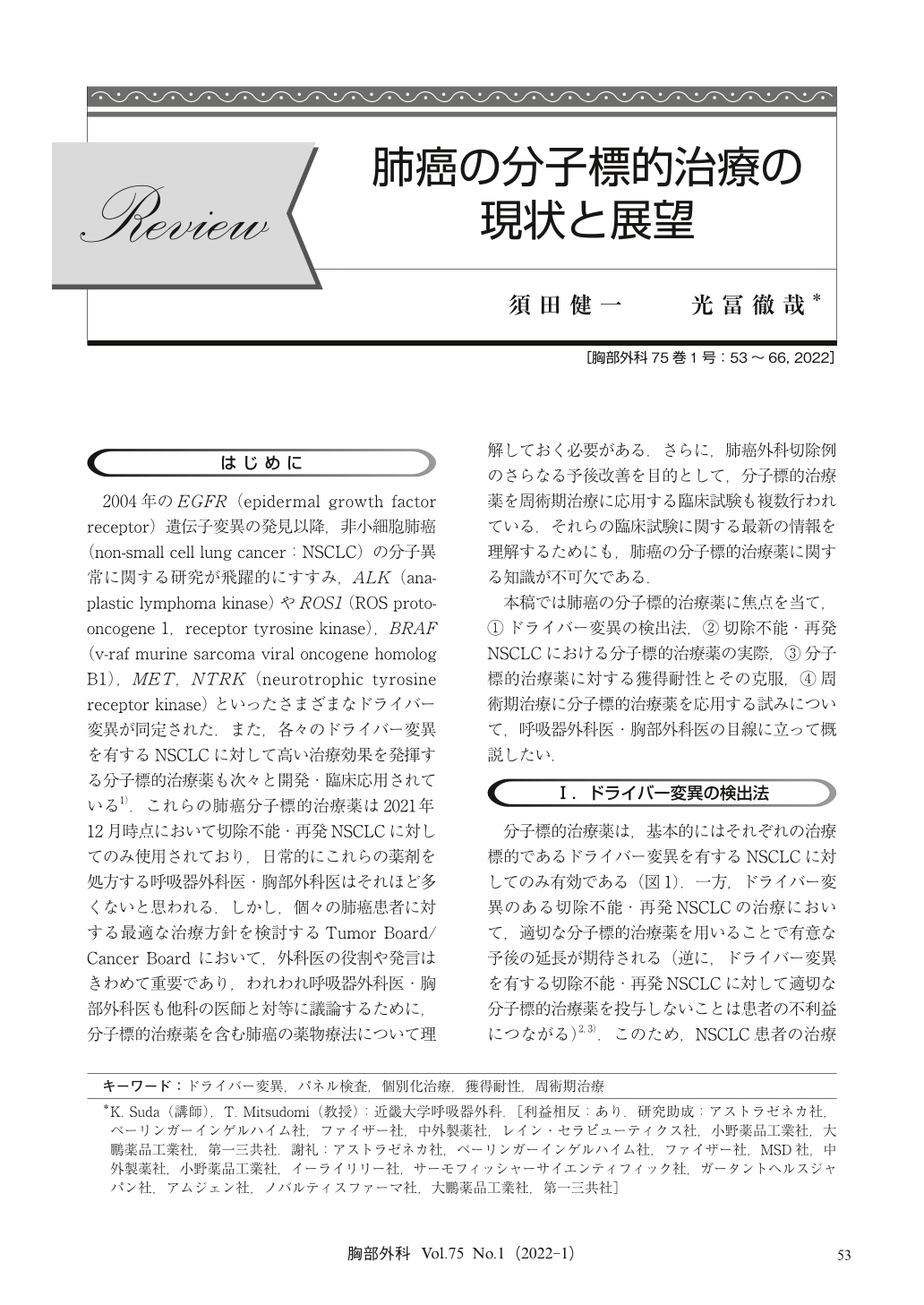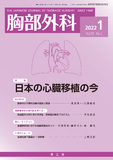Japanese
English
- 有料閲覧
- Abstract 文献概要
- 1ページ目 Look Inside
- 参考文献 Reference
2004年のEGFR(epidermal growth factor receptor)遺伝子変異の発見以降,非小細胞肺癌(non-small cell lung cancer:NSCLC)の分子異常に関する研究が飛躍的にすすみ,ALK(anaplastic lymphoma kinase)やROS1(ROS proto-oncogene 1,receptor tyrosine kinase),BRAF(v-raf murine sarcoma viral oncogene homolog B1),MET,NTRK(neurotrophic tyrosine receptor kinase)といったさまざまなドライバー変異が同定された.また,各々のドライバー変異を有するNSCLCに対して高い治療効果を発揮する分子標的治療薬も次々と開発・臨床応用されている1).これらの肺癌分子標的治療薬は2021年12月時点において切除不能・再発NSCLCに対してのみ使用されており,日常的にこれらの薬剤を処方する呼吸器外科医・胸部外科医はそれほど多くないと思われる.しかし,個々の肺癌患者に対する最適な治療方針を検討するTumor Board/Cancer Board において,外科医の役割や発言はきわめて重要であり,われわれ呼吸器外科医・胸部外科医も他科の医師と対等に議論するために,分子標的治療薬を含む肺癌の薬物療法について理解しておく必要がある.さらに,肺癌外科切除例のさらなる予後改善を目的として,分子標的治療薬を周術期治療に応用する臨床試験も複数行われている.それらの臨床試験に関する最新の情報を理解するためにも,肺癌の分子標的治療薬に関する知識が不可欠である.
Molecular targeted therapies are now guideline-recommended treatments for unresectable non-small cell lung cancer (NSCLC) patients harboring driver gene mutations as a front-line treatment. Currently, 17 agents have been approved in Japan for the treatment of patients with NSCLC harboring EGFR mutation, ALK/ROS1/NTRK/RET fusions, BRAF V600E mutation, or MET exon 14 skipping mutation. In addition, many novel agents are being developed against NSCLCs with the other driver mutations such as EGFR or HER2 exon 20 insertion mutations and KRAS G12C mutation. In the era of personalized medicine, thoracic surgeons are expected to play an important role, as one of specialists for multidisciplinary treatments of NSCLCs, at the tumor boards/cancer boards, therefore, the knowledge of genetic testing and molecular targeted drugs is becoming essential for thoracic surgeons. In this review, from the standpoint of thoracic surgeons, we briefly summarize current topics on molecular testing in NSCLCs, approved molecular targeted drugs in Japan, acquired resistance mechanisms to these agents, and attempts to use molecular targeted drugs in adjuvant/neoadjuvant settings.

© Nankodo Co., Ltd., 2022


